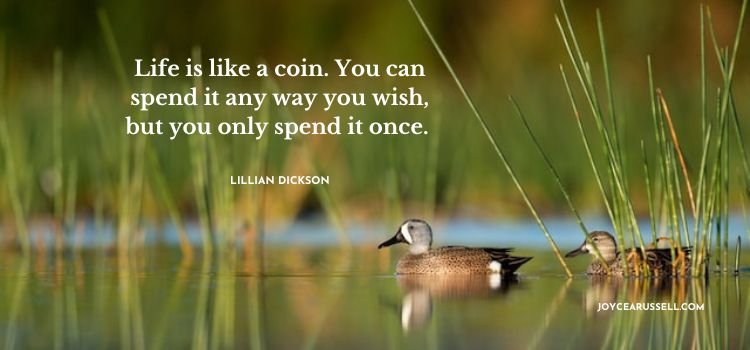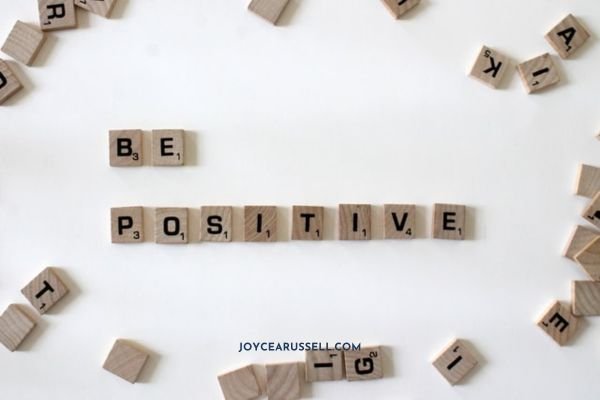Gram’s Wisdom 60: The kindness and happiness relationship.
Being kinder is not about making sacrifices or denying your own needs. Treating people kindly should not feel like an imposition or another task added to your already long list of items to be checked off.
It’s the outward display of living positively. Kindness is about mindset, and you can train your brain to make kindness a habit. Ever notice that being kind to someone makes you feel good too? It’s because altruism promotes a chemical reaction in your brain, releasing serotonin, oxytocin, and dopamine. These chemicals not only make you feel good but also work to reinforce positive social behavior. By laying down new neural pathways, you set yourself up for living a kinder, happier life.
My Gram wouldn’t have known any of those things and I doubt she would have cared even if she had known. Gram always seemed happiest when she could be of use to people. She understood all people need kindness at some point. Gram was interested in what people were going through and how they felt. She always seemed to have the right words to say to the person who was hurt, confused, or upset. But more than anything Gram believed that as individuals we should be kind to others wherever we can. And to be unkind was the worst thing you could do.
Here are some scientifically proven tips for engineering kindness into your brain.
1. Choose to be kind.
In choosing to be kind, you are consciously resetting your mindset to treat people with compassion and empathy. Choosing kindness isn't just a passive act; it's a change in your behavior and the world around you. Notice the effect of your kindness on others. When you smile, you see faces that mirror your positivity. Their natural reaction is to smile back. You’ve set up a kindness loop that continues to pay itself forward, creating a wave of goodwill. Ripples of compassion spread outward, touching many unknown lives. And the beauty? That ripple circles back to you.
Even on days when you feel low, a conscious act of kindness becomes a ray of light. Witnessing the joy in another's eyes ignites your own heart, sending a sense of purpose through your being. Negativity fades away, replaced by the power of connection. It's a wonderful paradox, choosing kindness for others morphs unexpectedly into your happiness. At that moment, you understand – happiness isn't found, it's created with each kind of act you perform.
The active nature of kindness: It's not just a fleeting feeling, but a deliberate choice with impactful consequences.
Ripple effect: Kindness's impact spreads outward and returns to the giver.
Mood boost: Choosing kindness can brighten even the dreariest days.
Purpose and happiness: Kindness connects us to others and brings personal fulfillment.
2. Do more random acts of kindness.
Turns out, happiness isn’t just a lucky charm. Research studies have shown that carrying out five random acts of kindness every week is the single most effective way of increasing your happiness. Anything from buying a pay-it-forward coffee to allowing another driver into the traffic with a smile and a wave, or the selfless act of shoveling snow from your neighbor’s sidewalk. These seemingly small gestures will make you and the other guy feel good. It’s a lovely exchange – you spread kindness, and in return you get happiness.
Remember, kindness isn't just about random acts of generosity, it's a way of being in the world. By your behavior and kindnesses, you cultivate a kinder, more compassionate version of yourself, one brain scan at a time.
3. Be kind to yourself.
Self-kindness begins with attention to the narrative running through your head. Is it one of encouragement, cheering you on with “yes you can”? Or is it a harsh critic, muttering doubt and negativity? Today, choose a different tune. Exchange the criticizing voice for one of moderation. One that says, “You’ve got this”. Pay attention to that voice in your head and change the message to kindness.
Build small acts of self-care into your day. Reward yourself for the big wins. But don’t forget the small things, a completed task, a morning walk, a moment of reflection. Prioritize the things that make you feel good. Whether it’s curling up with a good book, savoring a delicious meal, or losing yourself in a creative flow. Don’t forget that self-kindness is also about your body. Make sure you get enough sleep, stay hydrated, and eat a nutritious diet.
4. Gratitude rewires your brain for kindness.
Most people have heard of the power of counting blessings. Research has shown that focusing on the good things in life, and practicing gratitude, makes you happier. But it doesn't stop there. Research is proving that cultivating gratitude, the act of appreciating the good things in your life isn't just a feel-good practice. When you take time to count your blessings, your brain does some cool things. Studies show that the areas associated with stress shrink, while regions linked to self-awareness, empathy, and compassion grow.
How does this translate to kindness?
·By regularly noticing the good things, even the tiny moments, you re-mold your neural pathways. This isn't just mumbo jumbo - brain scans show dramatic transformation.
Increased self-awareness: By appreciating what you have, you become more mindful of yourself and others. This makes you more sensitive to their needs and feelings, opening doors to acts of kindness.
Boosted empathy: Gratitude builds connections. When you recognize your blessings, you're more likely to acknowledge and appreciate the good in others, leading to more compassionate actions.
Simple ways you can be kinder today.
Being kind isn’t difficult. Once you’ve set your mindset to ‘Kind,’ you’ll notice all kinds of opportunities throughout your day to reach out and be kind to someone.
As a bonus, once you’re in the kindness loop, you’ll notice you feel happier and more fulfilled. Scientists call this ‘the helper’s high’ as altruistic acts trigger the same endorphins as a ‘runner’s high’.
Kindness becomes second nature: As your compassion grows, it becomes easier to be understanding, forgiving, and helpful.
Stress-less, connect more: With less anxiety clouding your mind, you connect more deeply with others, fostering authentic kindness and empathy.
Here are some examples of ways to include kindness in your day.
1. Stop. Let a pedestrian cross the street or allow another driver into the traffic.
2. Say please and thank you.
3. Say good morning and good night to your colleagues.
4. Smile at a stranger.
5. Hold the door for the next person.
6. Hold the elevator.
7. Let someone with only a few items go in front of you in the grocery store.
8. Do a coffee run for your colleagues.
9. Hug your loved ones.
10. Push the trash bins out for your neighbors.
11. Mow your elderly neighbor’s lawn.
12. If you’re going to the store, ask your neighbor if you can pick anything up for them.
13. Try volunteering at your local soup kitchen or shelter.
14. Be the bigger person and let the other guy have the coveted parking space.
15. Stand up for someone on the bus or subway.
16. Ask a stressed-out co-worker if you can help.
17. Help wash the cups after a meeting.
18. If the photocopier is running empty, replace the toner and fill the paper bin.
19. Buy surprise flowers for your partner.
20. Give some coins to a street entertainer.
21. Pledge to stop complaining for a week.
22. Join your company’s mentor or buddy program.
23. Leave a book or magazine on the subway or in a bus station.
24. Donate your excess art supplies or craft materials to an elementary school.
25. Encourage your kids to sort through their stuff and donate items in good condition to charity.
26. Donate money to your favorite charity or non-government organization.
27. Notice what your partner or colleagues are wearing and pay a few compliments.
28. Ask a friend or colleague how they are and listen to the answers.
29. Reach out to family members or friends, send a text message, or call them to see how they are.
30. Clean up your neighborhood. If you see trash in the street, pick it up and put it in the bin.
Allow your compassion to spill over into your actions. By appreciating the good in your life, you become more familiar with the struggles and joys of others. When you realize the value of what you have, you naturally feel more inclined to share it with others. You're more likely to offer a helping hand, a kind word, or a smile.
My final thoughts.
I have always liked the descriptive way the ripple effect sounds as a kindness metaphor. Being kind to the person next door turns you into a neighbor. Rippling further out is your community, and further again is your town. It’s the care and consideration we show to people that make a society.
For more information, check out these posts.
It’s A Less Kind World We Live In.
Thank you for taking the time to read this post.















